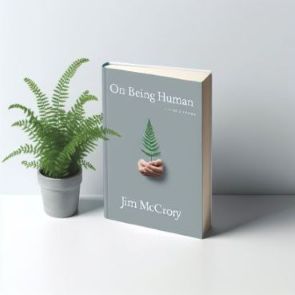
Under My Northern Sky
I was talking recently with a man who came to do some work in my house. Our conversations were brief, but in them we found much in common. Both of us had lost our parents as teenagers. That fact alone bound us in silent understanding. Grief is never tidy; it shifts and grows with us, like a shadow. We agreed on one truth: the loss strikes deeper as the years pass. The older we become, the more acutely we feel the gap where a parent should be. And in both our cases, it was death, not estrangement, that caused the absence.
That conversation carried me back to the mid-1990s, when I was crossing from Newcastle to Gothenburg on the Princess of Scandinavia. Late at night, I left the bar after a vodka and made my way up to the top deck to steady myself in the cold air. Above me stretched the Northern sky, clear, sharp, endless. Every star shone in a silence so complete it was almost deafening. Alone, I felt they belonged to me, arranged in a constellation no one else would ever see in quite the same way.
Under that infinite canopy, the helplessness of loss rose within me. Like Ingmar Bergman in The Magic Lantern, haunted by his demons, I muffled my cry in silence. I was thinking of my adopted father, gone since I was twelve. That wound, though decades old, still throbbed as though fresh. Out of that lonely communion with the heavens came a fragment of verse, whispered to myself:
Meet me amidst the ocean
Under my Northern sky
To the light of constellations
As our restless stars pass by.
It is moments like this that make me value the Swedish word sambovict. To me it speaks of resilience, of standing upright. It captures something essential about what it means to be human: to carry grief, and yet to endure.
Too many children today grow up without one of their parents, often the father. I pray for them. They may not yet feel the full weight of that absence, but in time they will. Happiness, in the truest sense, begins with stability. Children flourish in the soil of secure, long-term, trusting relationships—not only for the sake of the parents, but for the children born of that union.
When my father closed his eyes for the last time, I was twelve. I learned too soon the pain of absence. He wasn’t perfect, but he demonstrated his love in many ways. I longed for his voice, his daily guidance, his bedtime stories that stretched imagination into wonder. Those stories shape us. They are what make us human. I can still see him, book in hand, reading aloud David Copperfield, Oliver Twist, Pinocchio. His voice carried those worlds into mine, binding us together in ways I didn’t yet understand.
Many single mothers and fathers rise to the challenge, doing their utmost. But the pressures are heavy—keeping a household together, paying bills, sustaining hope, while bearing the emotional aftershocks of divorce or bereavement. No one carries that load without cost.
Children need both parents, not only to say, Well done, but also to speak the truth in love when change is needed. They need a mother’s embrace and a father’s hand on the shoulder. When one voice falls silent, a child grows up with a quiet ache, a loneliness that lingers, a sense that something vital is missing.
I have carried that emptiness through my life. It surfaces in unexpected moments: a conversation with a tradesman in my living room, a solitary night on the deck of a ferry bound for Gothenburg. Yet even in that emptiness, I see something of our humanity. To love, to lose, to long, and to hope again—that is what it means to live under our Northern sky.
